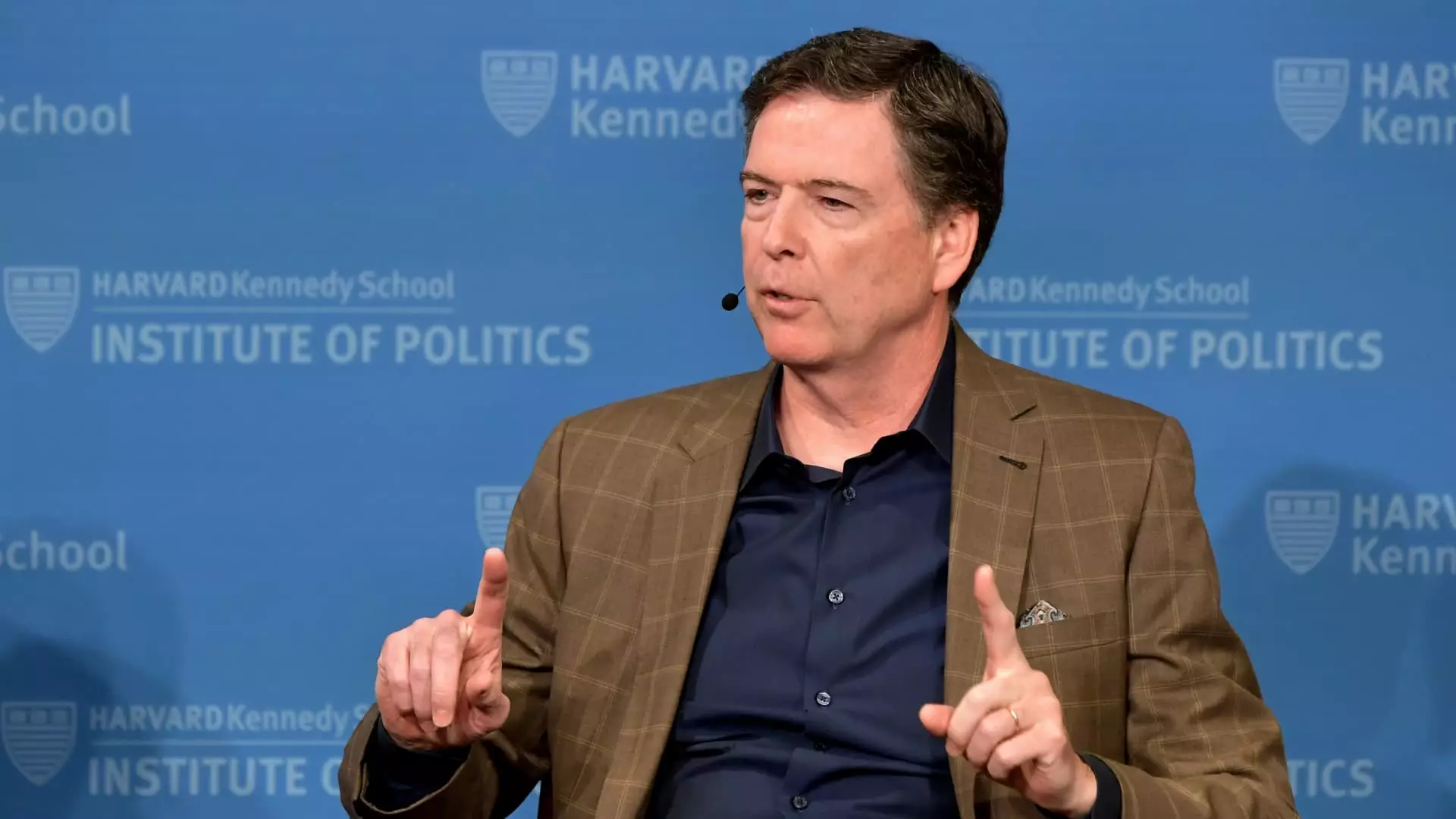In an unsettling twist of events, former FBI Director James Comey recently found himself at the center of a firestorm, accused of suggestively calling for the assassination of President Donald Trump. This outcry arose from a now-deleted Instagram post in which Comey showcased what he termed a “shell formation” that, coincidentally or not, shaped the numbers “8647.” This seemingly innocuous beach formation sparked outrage among government officials and Republican lawmakers, leading to an investigation by the Department of Homeland Security (DHS) and the Secret Service.
The reaction to Comey’s post highlights the charged atmosphere that envelops American politics today. The interpretation of “8647” as a coded message is a reminder of how quickly language can be weaponized. The word “eighty-six,” often used in colloquial terms to mean “to get rid of,” added layers of sinister connotation that raised alarm bells across the political spectrum. Secretary of Homeland Security Kristi Noem’s visceral response illustrates the current polarization where rhetoric, even oblique in nature, is dissected for any hint of danger.
The Consequences of Words
Comey’s post and the subsequent fallout demonstrate how the intersection of social media and political dialogue has become increasingly treacherous. While Comey claimed he did not intend his message to incite violence, his statement illustrates a common disconnect between intent and impact in our highly charged social landscape. Language is a powerful tool, and when misused, it can spark violent imagery and alter the perception of safety. Comey himself admitted that he did not recognize the potential implications of his post until it was brought to his attention, a sign of recklessness in an era when political tensions are already palpably high.
The swift backlash from Trump’s allies, including his son, Donald Trump Jr., amplifies the underlying paranoia that has become entrenched in American political discourse. After all, this is a society where every post or tweet can be weaponized against individuals, especially those in the political arena. Comey’s statement that he is “opposed to violence in all circumstances” does little to assuage fears. Critics argue that figures like Comey have a responsibility to communicate more cautiously, given their public platforms and the implications of their words.
Political Accountability and Double Standards
Calls for Comey’s arrest from figures like Rep. Tim Burchett serve as a testament to how serious the current climate is regarding perceived threats. Yet, it raises a fundamental question about accountability and the double standards that persist within political discourse. While Comey may indeed have acted irresponsibly, there is an alarming hypocrisy at play when one considers the continuous stream of violent rhetoric that sometimes emanates from the top echelons of political leadership itself.
One could argue that the focus on Comey is a distraction from more pressing issues regarding the political culture in America, where violent expressions have become normalized, if not outright glamorized by some. The outrage directed at Comey makes for a compelling narrative but fails to account for the larger narrative of political violence that permeates various corners of the landscape. It’s critical to demand accountability not only from Comey but also from others who downplay or even promote violence in political discourse.
The Role of Institutions in a Polarized Landscape
The response from the Secret Service and DHS underscores the seriousness of the threats toward political figures, raising questions about institutional responses to threats in a polarized environment. Should we find comfort in the fact that these agencies respond vigorously to threats, or is this a formula for further entrenchment of a culture of fear? This instance serves as a grim reminder of how rapidly trust in institutions can erode when the lines between accountability and censorship blur.
In an age where social media reigns supreme, and every utterance can be dissected for hidden meanings, the responsibility falls upon public figures to choose their words wisely. The intent may be absent, but the impact may reverberate through the political fabric of the nation. In facing an increasingly polarized political environment, it’s imperative for all sides to approach communication with a sense of gravity, mindful of the weapons of language that can undermine democracy and threaten the safety of individuals within it.

Leave a Reply